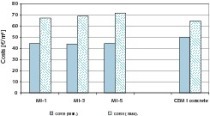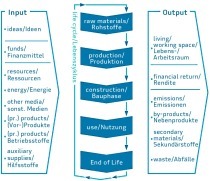Geopolymer concrete – Sustainability benefits and commercial potential
Geopolymer concrete is a promising alternative to traditional Portland cement-based materials due to its superior environmental performance. Life cycle assessment studies have shown that geopolymer concrete has a lower carbon footprint and can significantly reduce global warming potential. However, there are still several challenges in conducting LCA studies for geopolymer concrete, including selecting a functional unit, defining clear system boundaries, and addressing subjectivity in data interpretation.
To maximize the sustainability benefits of geopolymer concrete, it is crucial to use internationally accepted LCA methodologies and provide transparent information about material handling and processing distances. From a commercial perspective, the production of geopolymer concrete requires different materials and methods than traditional concrete, which may impact the supply chain and logistics. However, with the increasing demand for sustainable building materials, geopolymer concrete has significant potential in the construction industry.
Decision-makers in the concrete industry can use the sustainability assessment triangle (SAT), a weighting scheme based on environmental, technical, and economic parameters, to select the best recipe for achieving sustainability goals. This approach can assist in making decisions for industrial applications. In conclusion, geopolymer concrete offers a sustainable and commercially viable alternative to traditional concrete and should be considered in future construction projects.







